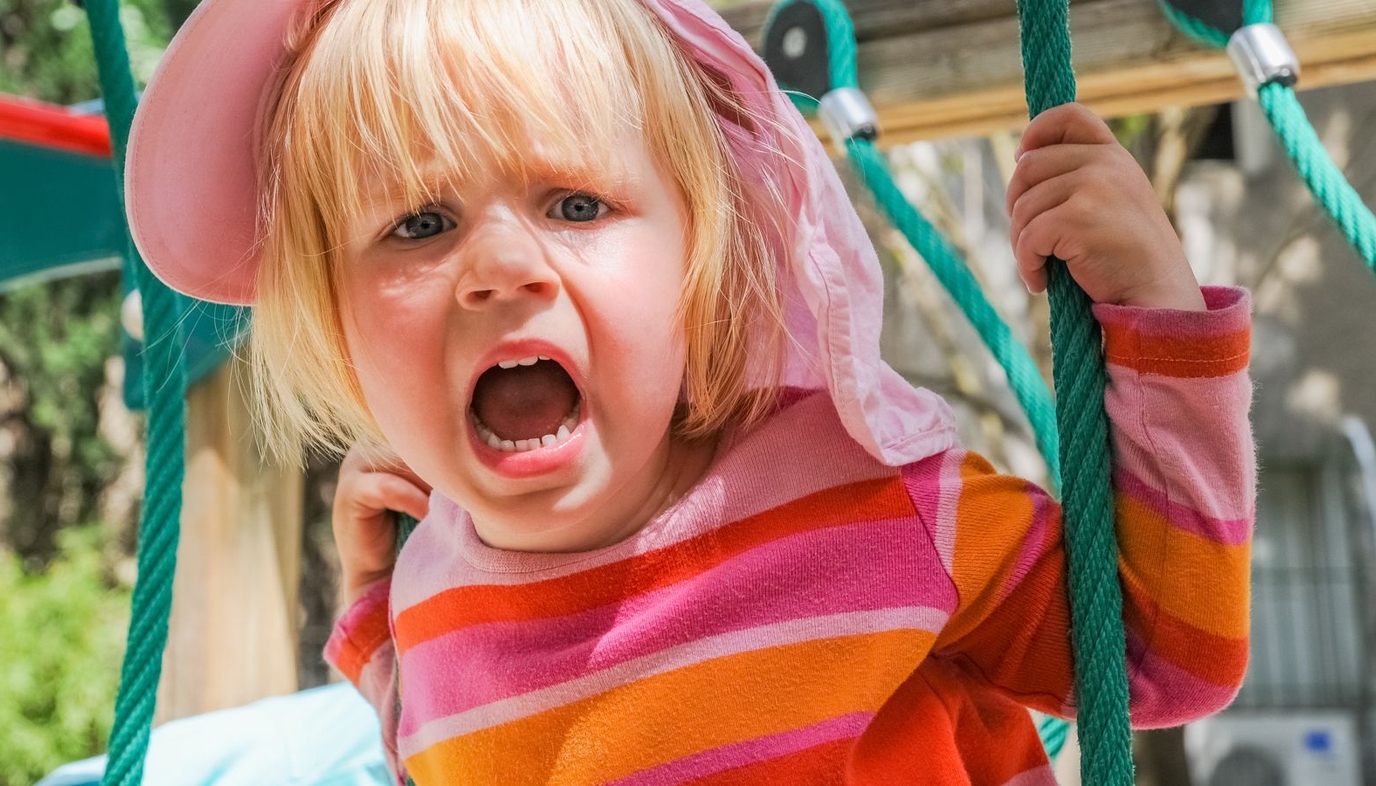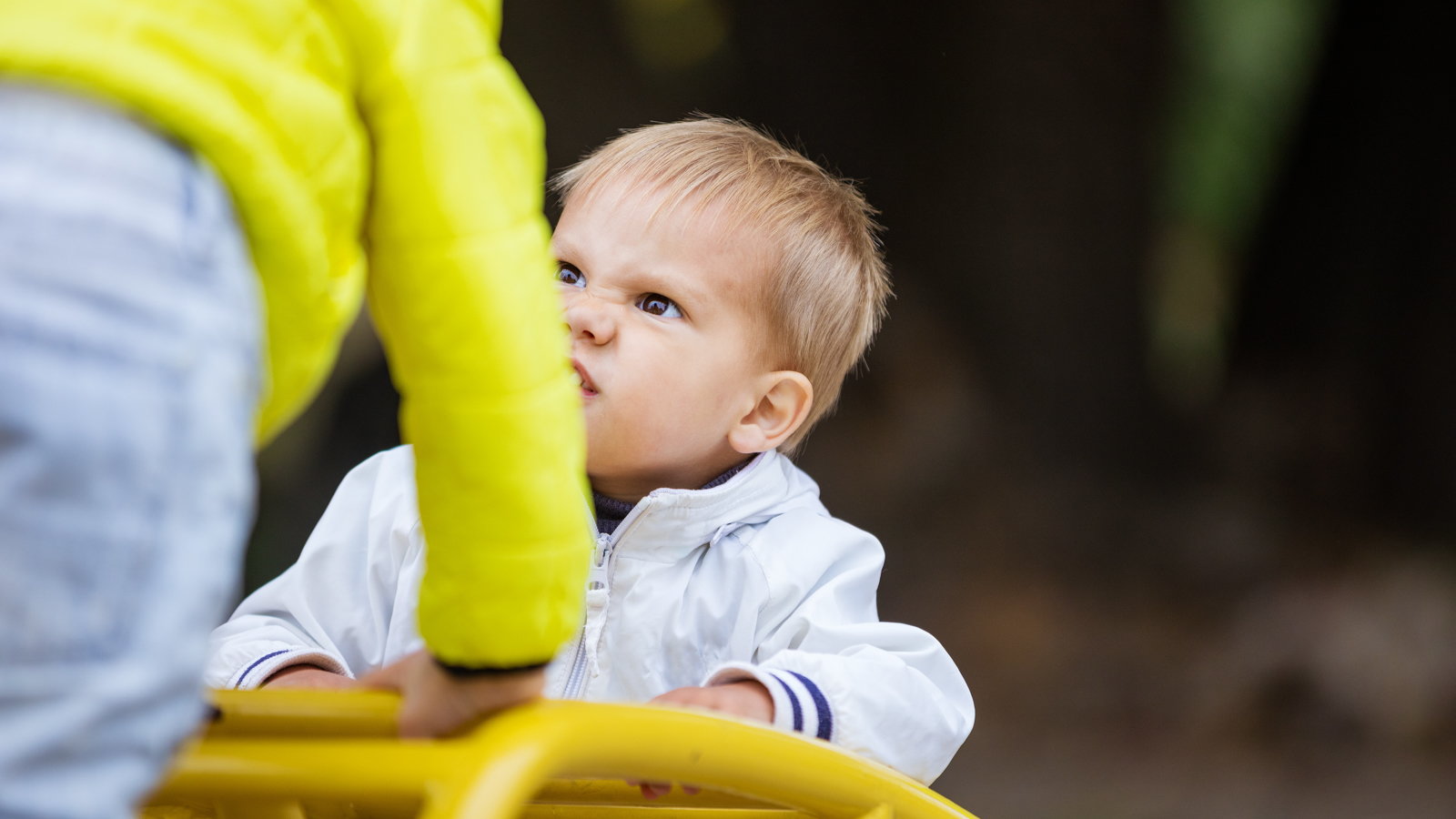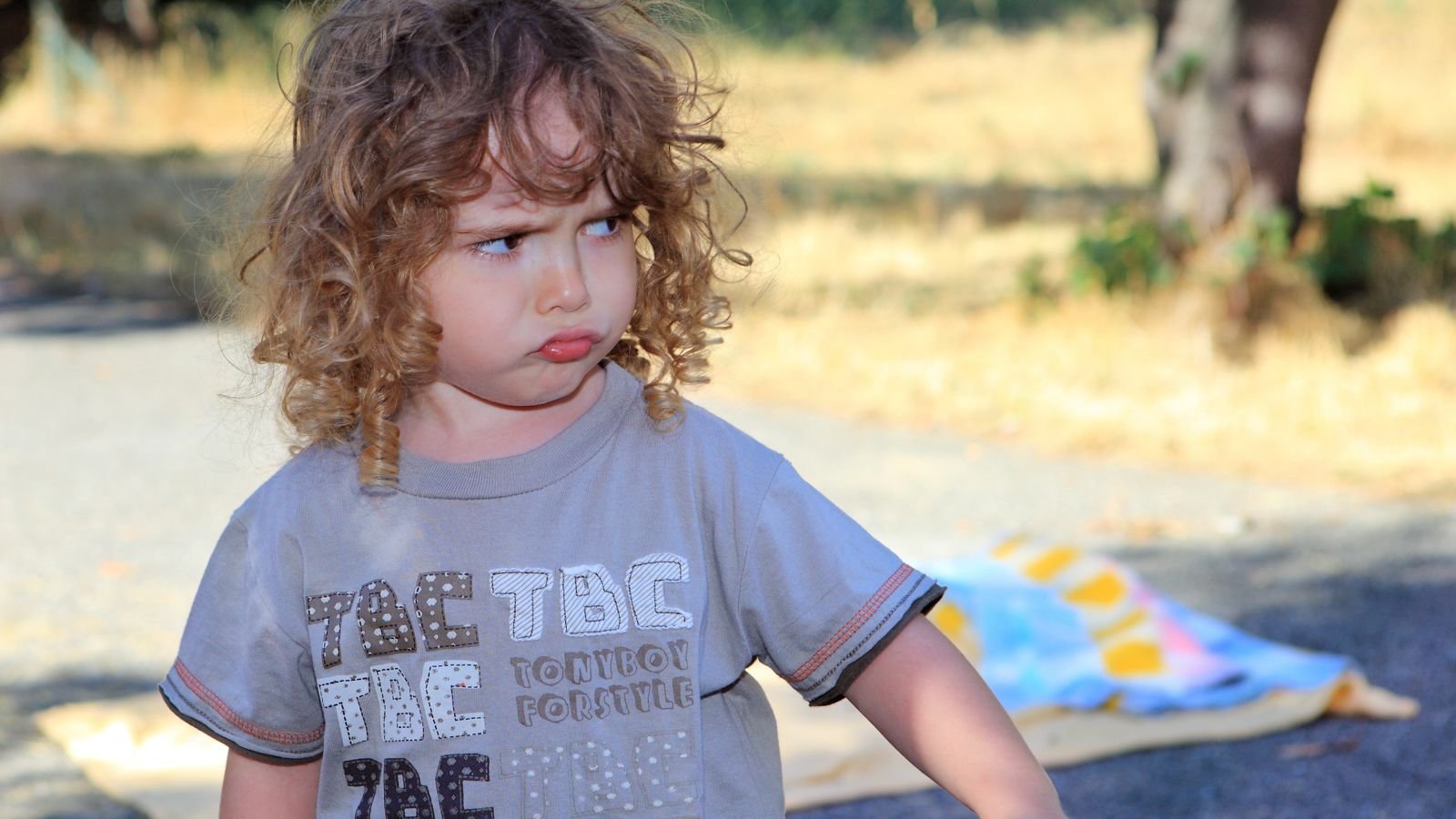
The world can be a scary place for little ones. Everyone and almost everything is bigger than they are. They have no real control over where they go or what they do. Some children are shy and intimidated by the world around them so they become withdrawn. With age and guidance, most kids come out of their shells and grow up to be confident children.
But there are some toddlers that deal with their fear and frustration over their feelings of insignificance in the world by striking out and being aggressive.
Aggression in Toddlers
Anger is an empowering emotion because it masks the more vulnerable feelings like frustration, fear, and sadness. Anger is very rarely about being angry. Toddlers don’t have the capacity to communicate, and if they somehow manage to, it’s certainly not on the level of an adult’s language skills.

Most of us are very uncomfortable with feelings of sadness and fear or frustration, and we know how to communicate. If someone is mean to us, we’ve learned the tools for how to handle them and we’ve learned how to handle many other vulnerable emotions. However, we all fall back on anger because it makes us feel strong. It’s an effective, cathartic release of the tension caused by those other uncomfortable emotions. We’ll show them. No one is going to boss us around or make us feel small or hurt us. We fall back on the safe emotion of anger even though we know better, so how can we expect a toddler to react calmly and rationally when faced with the same feelings?
Teaching Little Ones Healthy Forms of Expression
Firstly, we should understand that a little aggressiveness is okay. Being aggressive doesn’t have to be about anger. If we lose our aggressiveness, we lose our drive and ambition, and those are certainly vital for us to succeed in life. It’s when that aggressiveness manifests itself violently, through biting, screaming, kicking, and/or hitting that we need to worry. Before it gets to that point, we have to reign in our little ones in or they may turn into those terrible bullies we all remember from childhood and even worse, turn into adult bullies as well.
There are many toddlers who start off aggressive because it’s their favorite and most effective way to communicate. Most children will outgrow this behavior by the age of seven, but it usually takes you as the parent for that to happen.
Toddlers are excellent mimics so chances are good that, if he’s acting out in anger, it’s because he’s witnessed it from the adults around him. So maybe you could try and take a look at how you or your spouse behave around your child. If you’re quick to anger with each other, try and be more patient and communicate more positively with each other. This way your child will have something positive to mimic. If abuse is present in your home, you may have to make the decision to remove yourself from the abusive situation because the statistics are astronomical regarding children who grow up in abusive homes and become abusive themselves.
When your child gets aggressive, try and react calmly but firmly as you tell him that he cannot behave that way, and you are very unhappy with him when he gets angry and throws things. He can see that while you are obviously not thrilled with him, you are able to control your anger. Even as you put him in a time out or punish him by either removing him from the situation or taking away privileges, make sure to not to yell at him. Hopefully, as he sees how you control your anger, he can learn how to control his.
Don’t wait until you’re pushed to the limit before responding to his tantrums or angry behavior. If you ignore it or half-heartedly call out for him to stop it and then you finally snap and shout or hit him, that’s how he’ll learn to handle frustration. The best thing to do is to stop his behavior as soon as possible. Make it very clear that you will not tolerate his acting out and give him very clear consequences as soon as the behavior happens.
If he’s hitting other kids, pull him away and let him know that he will not be allowed to continue to play unless he behaves nicely and apologizes to the person he hurt. This shows him that not only are there consequences for his actions, but also he has to make amends for people he hurt. If he continues to hit, take him home. Make him promise to behave if he wants to play with the other children. If, when he comes in contact with other children, he reverts back to hitting and being mean, take him home again. If you respond consistently, it will gradually teach your child that behaving badly will not get him what he wants but will make you take it away.

Get down to your child’s level when they get aggressive and try and draw them out to express the feelings behind the anger. Tell them that you know he doesn’t really want to be a bad boy/girl and that maybe he’s just feeling sad or scared, even if he’s mad or frustrated with you, and that that’s okay to express. Give him an example of yours to draw from, like maybe you could tell him about times when people don’t respect you or say something mean to you and that makes you feel sad. Tell him how important it is that he tell you or show you when he’s feeling sad or scared so that you can try and make it better.
There are times where aggressive behavior just seems to escalate no matter what you do, in which case it might be time to bring some professional help on the scene.
Don’t think of it as failing as a parent; think of it as just one more tool into your arsenal to help your aggressive toddler become a happy adult.
